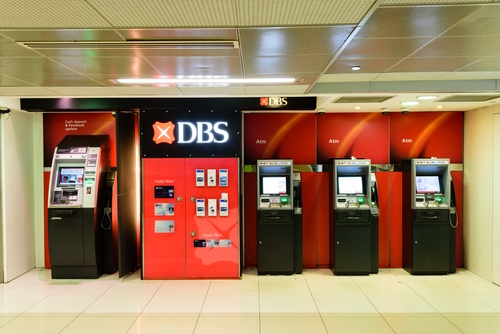
Singapore's 20 largest commercial banks in 2016
Singapore banks are likely to feel a pinch, but nothing too painful.
If you were expecting Singapore banks to shake in their boots after the shockwave of Brexit – the United Kingdom’s vote to leave the European Union – then you may be overestimating its negative impact. Analysts recognise that Singapore banks will likely feel a pinch, but nothing too painful. If anything, banks have bigger problems than Brexit to worry about such as a slowing Chinese economy where they have significant exposure.
Brexit means slower economic growth in a heightened risk environment, which is negative for banks, says Derrick Heng, analyst at Maybank Kim Eng.
But the detrimental effect on Singapore banks should be contained since their direct United Kingdom and British pound exposure should be marginal. OCBC, which is the only one to provide a breakdown of loans and deposits denominated in British pound, only had around 2% of loans and 3% of deposits in British pound in 2015.
“Brexit implies more volatility ahead and with more economic uncertainties, banks will be less willing to take on more risks,” Heng explains further. “Possibility of lower interest rates and lower growth will lead to margin compression and lower revenues, thus cost rationalization in the sector remains a priority.”
While Brexit may slow global economic growth, there is a likelihood of a US Fed Fund rate hike this year, says Leng Seng Choon, analyst at RHB.
He expects DBS to benefit most from such a rate hike scenario through a widening of net interest margin due to its Singapore dollar (SGD) current account, savings account that represents 91% of total SGD deposits, which will minimise interest expense and expand loan yield.
China’s slowdown
Other analysts point out that Brexit is only one of the many problems that hound Singapore banks, and may not even be its most pressing one. Banks are also grappling with the slowdown in Greater China, a foreign market in which they have expanded aggressively over the past seven years, says BMI Research.
BMI Research estimates total exposure of Singapore’s big three banks – DBS, OCBC and UOB – to Greater China as a share of their overall loan portfolio has risen to 22.5% in March 2016, from just around 15% at the end of 2009.
Negative credit outlook
DBS broke a tie with Citibank this year as Singapore’s largest bank in terms of total number of staff. In 2015, the two landed on the top spot as both reported a total of 10,000 staff.
DBS increased staff by 400 more this year. However amidst challenging outlook this year for the banking sector, DBS CEO Piyush Gupta said that the bank will slow down recruitment and pay rises.
Other banks which increased staff this year include UOB, BNP Paribas, CIMB Bank, RHB Bank, Mizuho, Credit Agricole Corporate and Investment Bank, and ICICI bank. Those who reported decreases in number staff on the other hand are ANZ, Bank of India and UCO Bank.
Together, Singapore’s 20 largest banks increased staff by 1.4% to 58,053.
Eugene Tarzimanov, VP-Sr credit officer at Moody’s Investors Service forecasts Singapore gross domestic product growth to slow to 1.6% in 2016 and to 1.5% in 2017, which will be lower than the 2% achieved in 2015 and the average of 4.5% between 2011 and 2014.
Brexit means slower economic growth in a heightened risk environment, which is negative for banks.
























 Advertise
Advertise






